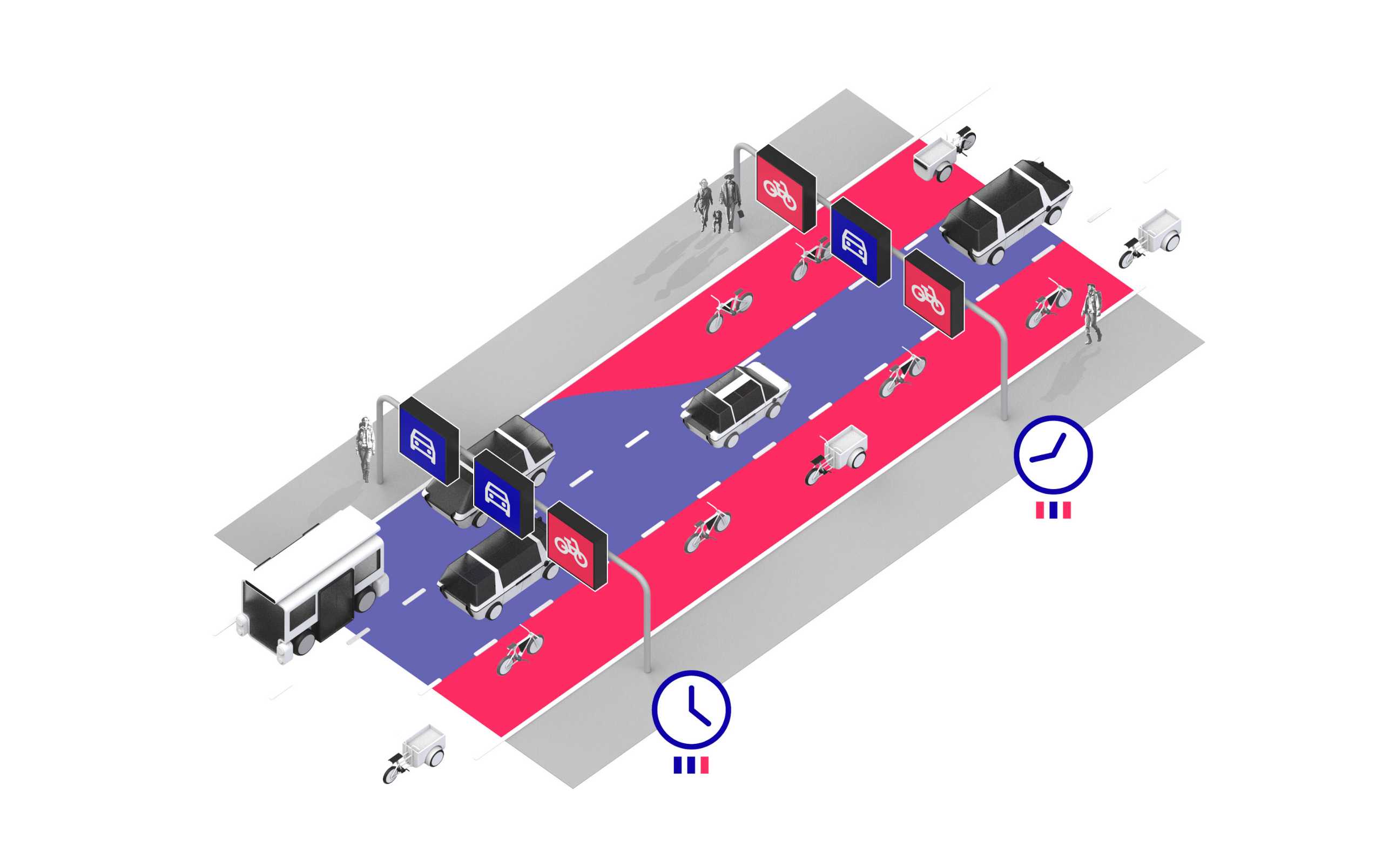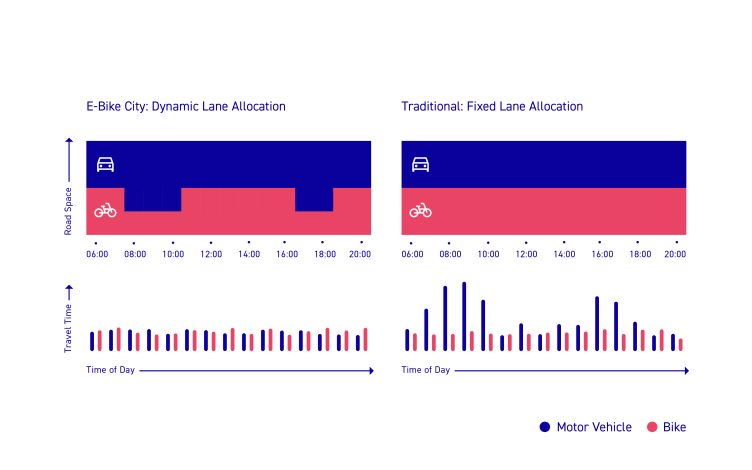Congestion-informed road space allocation for cars and bicycles
Sub project D

Description
Dedicated road space strategies for different modes can optimize accessibility, with a long-term goal of motivating travelers to opt for specific transport modes instead of private car, leading to reduced car demand and more efficient road space use. Among various policy measures, dedicated purpose lanes (bikes or buses) have seen wide use due to their effectiveness in reducing delays caused by traffic interactions. However, space reserved for one mode is taken from another one, which can potentially induce congestion due to local capacity reduction, e.g. in neighborhoods of infrequent usage or mode-inflexible demand, indicating that location selection plays an important role in the efficiency of space allocation strategy.
Balancing the trade-off between eco-friendly mode enhancement and general traffic performance in an optimal way is a very challenging task. Not only due to the complexity of multi-modal network traffic modeling, but also due to the competitive nature of the problem, which requires accurate prediction of travelers’ reactions concerning mode and route choices; these can be significantly influenced by any infrastructure change (such as a dedicated lanes). This optimal design problem can be addressed by assuming static traffic conditions, assuming steady-state traffic conditions, with link travel times being calculated by empirical relationships on the basis of standard delay functions. However, dynamic congestion propagation due to spillback effects of queues in city-scale networks should be considered.

The problem of urban road space management can be studied based on macroscopic traffic modeling, employing the Macroscopic Fundamental Diagram (MFD). Reserved lanes for different modes can reduce traffic-related delays even for non-prioritized vehicles. The multi-modal MFD can capture the dynamic interactions between competing modes, and a generic framework for road space allocation can be developed that optimizes passenger throughput and road capacity management. It will be expanded for capture the dynamics of the flows in the network to allow for a dynamic allocation of the road space between the modes, where possible.
Publications
Principal investigators
Gruppe Strassenverkehrstechnik
Stefano-Franscini-Platz 5
8093
Zürich
Switzerland

Researcher
Gruppe Strassenverkehrstechnik
Stefano-Franscini-Platz 5
8093
Zürich
Switzerland
